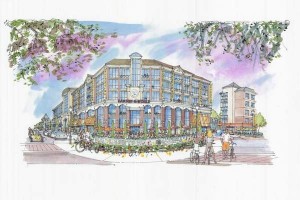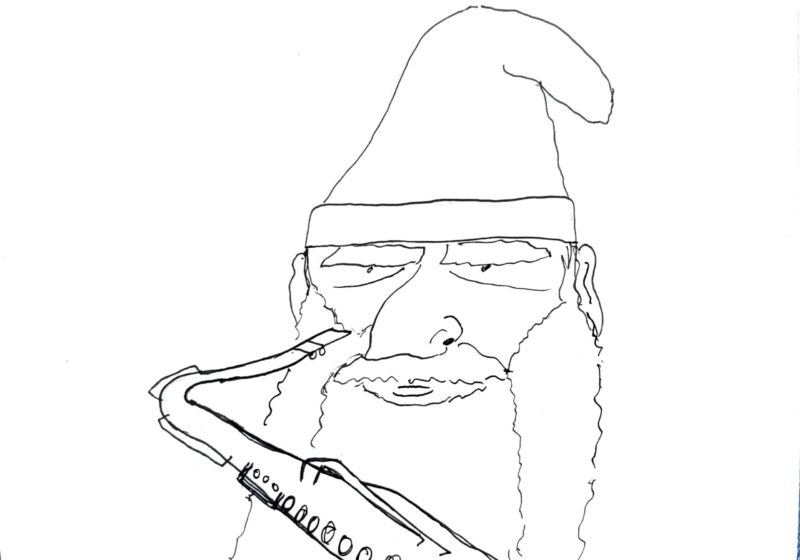
Courtesy of Ronald Paprocki
In a letter to City Council in early March, Rochester Mayor Thomas Richards requested a $20 million loan for the continued development of College Town, a multipurpose construction project along Mount Hope Avenue, initially proposed in January 2011.
“Our connection to UR will grow as a result of College Town,” Richards said. “This project will enable Rochester to gain even greater benefits from the University’s property, its people — including its students, employees and the community receiving its services — its ability to attract strong retailers and its rent payments. In turn, the project will provide a substantial amenity for the city, generate tax revenue and pay for the financing which we would not otherwise be able to do.”
If the city approves the proposal, it would borrow $20 million from the U.S. Department of Housing and Urban Development (HUD). City officials say the loan would be repaid over a 20 year period through various property taxes generated by College Town.
“We support the developer’s request for a HUD 108 Loan through the city,” UR’s Senior Vice President of Administration and Finance Ronald Paprocki said. “It is difficult to do projects of this sort without public-private collaboration.”
UR has merged Fairmount Properties, a Cleveland-based real estate development firm, with other similar companies into a consortium — College Town Rochester, LLC — which will be responsible for spearheading the $140 million project.
Linking the main entrance to campus with the adjoining Mt. Hope neighborhood, the completed project will serve as a thoroughfare for both members of the University and the Rochester community at large.
“This project is enormously beneficial in many ways,” Paprocki said. “It brings services and amenities to our students, faculty and staff as well as patients and visitors to the Medical Center. However, it also strengthens the neighborhood and benefits residents and businesses in the area. It will provide retail opportunities now available only in the suburbs. It will be a unique destination in the city.”
Plans for College Town — located on a 16-acre, University-owned plot between Crittenden Boulevard and Elmwood Avenue — include a two-story Barnes & Noble, restaurants, gourmet food markets, office space and a 150-room hotel and conference center. A parking garage with capacity for 850 vehicles whose first floor would be a Rochester Genesee Regional Transportation Authority transit station is also in the works.
Richards anticipates that the initiative will create nearly 1,000 construction jobs and 600 permanent jobs “that people in the general population can get.”
“We’re not hiring a Ph.D. in physics,” he explained. “You’d have a hard time pointing to other projects that will generate that kind of impact. From that point of view, it’s a very positive issue.”
City Council member Adam McFadden, who represents the district that incorporates College Town, criticized the proposal, insisting that Rochester citizens are already overburdened financially. A multimillion-dollar loan would only exacerbate the city’s current economic downturn, he believes.
“We have an institution with a [large endowment] and a developer who has means, and I’m trying to understand why we need to [lend] them money to get this project done,” McFadden said. “I look at my district overall and there are plenty of projects and people that need this type of help, and I would not think UR would be one of them.”
City Council will vote on the proposed loan in its April 24 meeting.
Gould is a member of the class of 2014.



